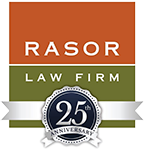What is the Clean Slate Act Michigan and How to Get a Criminal Offense Expunged From Your Record
What is The Clean Slate Act Michigan?
The clean slate act Michigan provides individuals who have been previously convicted, a way to expunge or remove a criminal offense from their record.
For a criminal offense to be expunged in Michigan, it must fit certain circumstances as well as meet predetermined conditions.
In this article, I’ll discuss Michigan’s expansion of expungement laws, through the clean slate act. I’ll also take you through the expungement process and give some examples of what kind offenses are eligible for expungement as well as what offenses do not qualify for expungement.
What does it mean to have an offense expunged from your record?
When a criminal offense is expunged from a public record, it means that past offense is removed and no longer shows up. In 2021, Michigan approved the clean slate act, allowing individuals to remove up to three felonies and an unlimited number of misdemeanors.
Expungement seals a criminal record. Expungement does not completely remove an offense from a person’s history, but it cleans and removes it from a person’s public record, which means people will not have access to it. A record of all criminal offenses still exists but is only available to law enforcement.
Expunging criminal acts from a person’s record will open the door to many possibilities previously made difficult or unattainable to persons who have previously been convicted.
While the clean slate act Michigan expanded the type of offenses and the number of offenses that can be removed from a person’s record, the clean slate act does not apply to some assault or weapon-related offenses that carry long-term sentences. Offenses such as murder and criminal sexual conduct are also excluded.
How Does The Clean Slate Act Michigan Work?
When a criminal offense is expunged, it is no longer accessible to public record. This means employers, landlords, and others cannot locate or view past offenses. As mentioned above, a record of criminal offenses a person has previously been convicted for is still on file and will be accessible by law enforcement agencies.
In 2021, Michigan law expanded expungement laws when they enacted the Clean Slate Act.
In addition to expanding the types of offenses that can be expunged as well as the number of offenses, Michigan’s clean slate act also makes it so that certain convictions will eventually be automatically removed from a person’s record, without the person needing to petition or apply for removal to the convicting court.
For example, a person with two felonies on their record will see those felonies automatically expunged 10 years after the person the person’s release from custody. Up to four misdemeanors will be automatically removed after seven years of conviction or sentencing.
Hundreds of thousands, if not millions, are now eligible to get their criminal records cleaned, thanks to the clean slate act Michigan. In fact, following the approval of the clean slate act in April 2021, the number of expungement petitions filed in Michigan doubled over the previous year.
Main Reasons to Expunge a Criminal Record
Having a criminal record can create many difficulties for a person down the line. For example, employers and landlords often ask applicants and they have ever been arrested or convicted for a criminal charge. Attaining a professional license can also be difficult as well as getting accepted to a school, college, or university. Depending on a person’s criminal record, the person may face difficulties in life attaining a stable job or finding a decent place to live.
Thanks to the clean slate act Michigan, individuals who have crimes on record may qualify to have them expunged and removed from their public record, depending on the crime and the cricumsances.
Nationwide, expunging a crime from a record can mean different things, depending on the jurisdiction. In Michigan, the clean slate act allows individuals to seal their record of up to three felonies and an unlimited amount of misdeamnors.
The expungement of a crime from someone’s record is not related to whether the person was innocent or not, or a correct or incorrect conviction. By expunging a record, it presumed that a person committed a felony or misdemeanor and was convicted for it. Expungement takes out the negative impact that such crimes may have on someone’s public criminal record.
Removing crimes from a record is an important part of allowing someone who has completed all requirements of their conviction, to move forward with their life and start fresh.
In Michigan, the process to expunge a criminal record requires the defendant to petition the court requesting removal of a charge or charges on record, convicted by that court. The expungement application applies to a specific crime, rather than a person’s entire record.
The petition is made by filling out an application form and is sent to the Michigan State Police who will process the request and compile a history of the person’s criminal past. Ultimately, the Attorney General will approve for or call a hearing for expungement.
Once a petition is approved, people with access to public records will not be able to see any record of the crime expunged. However, for historical purposes, law enforcement will still be able to access the records.

What Are The Benefits of Clearing Your Criminal Records?
There are many benefits to having a criminal record cleared, some main ones include:
Getting Accepted at College and University
Many young adults may find it hard to get approved to go to some colleges and universities if they have a criminal record or a juvenile record. Having a criminal record expunged will allow people to go to college to learn a carrier of their choice, giving them a second chance and preparing them to live a successful life.
Getting the Job You Want
Many job applications will ask if you have previously been convicted of a criminal offense or if you have been arrested.
Clearing your criminal record will help you avoid getting turned down for employment. It is also common for an employer to run a background check on potential employees. An expunged record will remove the criminal offense from your public record, and employers will not have access to see it.
Finding a Decent Place to Live
Landlords often run background checks to keep their neighborhoods, or buildings safe. If a person has a criminal offense on record but has since changed and is living a better life, that criminal offense may stop them from being able to live in a decent apartment or even buying a condo, or living in a neighborhood. An expunged record helps people gain access to living situations, allowing them to have a safe place to live.
There Are Also Social Reasons to Clear Your Record
It’s not hard to view someone’s criminal record online if the crime is a matter of public record. Having a record expunged can help a person minimize the impact of their past on their present-day social affairs, relationships, and even family.
If a person living in Michigan, has been convicted or a crime and has a public record, how does he get it removed?
Clean Slate Act Michigan: How To Get A Criminal Offense Removed From Your Record in Michigan
Expungement Process
- Individuals who want to remove an offense from their record must submit an application. Expungement application forms can be found in the “applications and expungement” section of Michigan’s expungement assistance website.
- Once filed, the Michigan State Police will review and process applications. It is important to include all documentation as required by the MSP, documentation required to expunge a criminal record. It can take up to two months for the police to review and process an application.
- The Attorney General’s office will respond to an application after the criminal history report has been completed by the police. It can take up to three months for this part of the process.
- The last step is an expungement hearing.
There is a $50 filing for any expungement application.
The entire expungement process can take eight months.
How a Michigan Criminal Defense Attorney Can Help You Clear Your Record
While the clean slate act opens the door to individuals clearing their criminal record, it does not mean it’s simple.
It can take anywhere from eight months to a few years for the process to be completed. A petition may also be rejected, making it more difficult to expunge a public criminal record, and requiring further appeals.
Filing for expungement in Michigan can be a complicated, multi-step process. For help determining whether or not the clean slate act applies to you, contact an experienced Michigan criminal defense attorney.
If you have ever been denied a job, a living opportunity, or a professional license due to a past criminal offense on your record, you understand how important it is to clear the past so you can move on with your life into the future.
Clearing a criminal record in Michigan is possible, but it’s important to know and understand the process and compile a good application. By working with a skilled Michigan criminal defense attorney, a criminal record can be erased, depending on the type of crime and its circumstances.
A crime committed in the past can have a life-long impact on a person’s life. At Razor Law, we can help determine if offenses on your record qualify for expungement, as well as help you through the process ensuring a proper petition and application is filed and representing you during the hearing.
833-JIM-WINS
Handcrafted Legal Strategy. Personal Attention. Maximum Results.
Clean Slate Act Michigan: What Offenses Qualify for Expungement?
Michigan’s clean slate act expanded a person’s eligibility to petition for expungement in several ways and streamlines the process that will automatically seal certain non-violent conviction records as long as a person has remained conviction-free for a period of time, depending on the crime committed.
However, not everyone and not all offenses qualify for expungement.
The first step to getting a criminal offense removed from a person’s record is to determine if the person or the crime qualifies for expungement. This will largely depend on the offense, the time that has passed, as well as the severity of the offense.
For example, if a person has never been convicted of any felonies but has been guilty of misdemeanors, they may petition to remove an unlimited amount of misdemeanors. However, persons with more than three felonies on their record may not qualify.
That said, under the clean slate law Michigan, a conviction of multiple offenses is treated as a single conviction as long as the offense took place within a 24-hour time period and at the same place.
This is why it is advised that if you have multiple offenses on record you consult with an experienced Michigan criminal defense attorney to make sure you qualify and to prepare the proper documentation to increase the likeliness of approval.
After its determined that a person qualifies for expungement, the next step is to review what convictions are eligible for removal. For example, even if a person has only one conviction, that conviction may not qualify for expungement. It depends on the nature of the crime for which a person was convicted.
Less serious offenses that fall under the clean slate act Michigan include:
- A third assault conviction
- Certain child abuse offenses
- Possession of child pornography
- Certain drug possession or drug-related offenses
- Solicitation of prostitution
Persons who want to apply for expungement in Michigan will also need to meet certain waiting periods depending on the seriousness of the conviction they want to be expunged. Some people may need to wait up to seven years before filing.
It’s important to understand that, even if a person qualifies for expungement and even if a crime falls under the clean slate act and can be expunged, it is ultimately up to the General Attorney’s office to approve for the criminal offense to be expunged.
Criminal offenses that do not qualify for expungement under Michigan’s clean slate act include:
- All offenses punishable by life imprisonment
- Assault with intent to commit criminal sexual conduct
- Child sexually abusive material or activity offenses
- Felony domestic violence if the person has a previous misdemeanor conviction for domestic violence
- Fourth-degree criminal sexual conduct (committed after January 12, 2015)
- Human-trafficking related offenses
- Second-degree child abuse
- Second-degree criminal sexual conduct
- Some traffic offenses such as convictions for driving while intoxicated, traffic offenses that cause injury or death, and commercial driver’s license violations
- Terrorism-related offenses – includes convictions for attempts to commit any of these offenses
- Third-degree criminal sexual conduct
- Using a computer to commit sex crime offenses
How Rasor Law Can Help Clear Your Criminal Record
Expunging criminal offenses from your record will allow you to live a life without the difficulties of having a criminal public record and can give you a fresh new start.
Working with a Michigan criminal defense attorney will increase a person’s chances of success, as attorneys are often more familiar with the judge, prosecutor, and all related laws related to an expungement application.
Rasor Law is one of Detroit’s most trusted criminal defense attorney firms, having represented thousands of favorable cases. By speaking to one of our attorneys, we can help determine whether you qualify for or if an offense you have been convicted for qualifies for expungement. And if it does, we can help you through the petition and application process and represent you at the hearing to help attain a favorable outcome.

